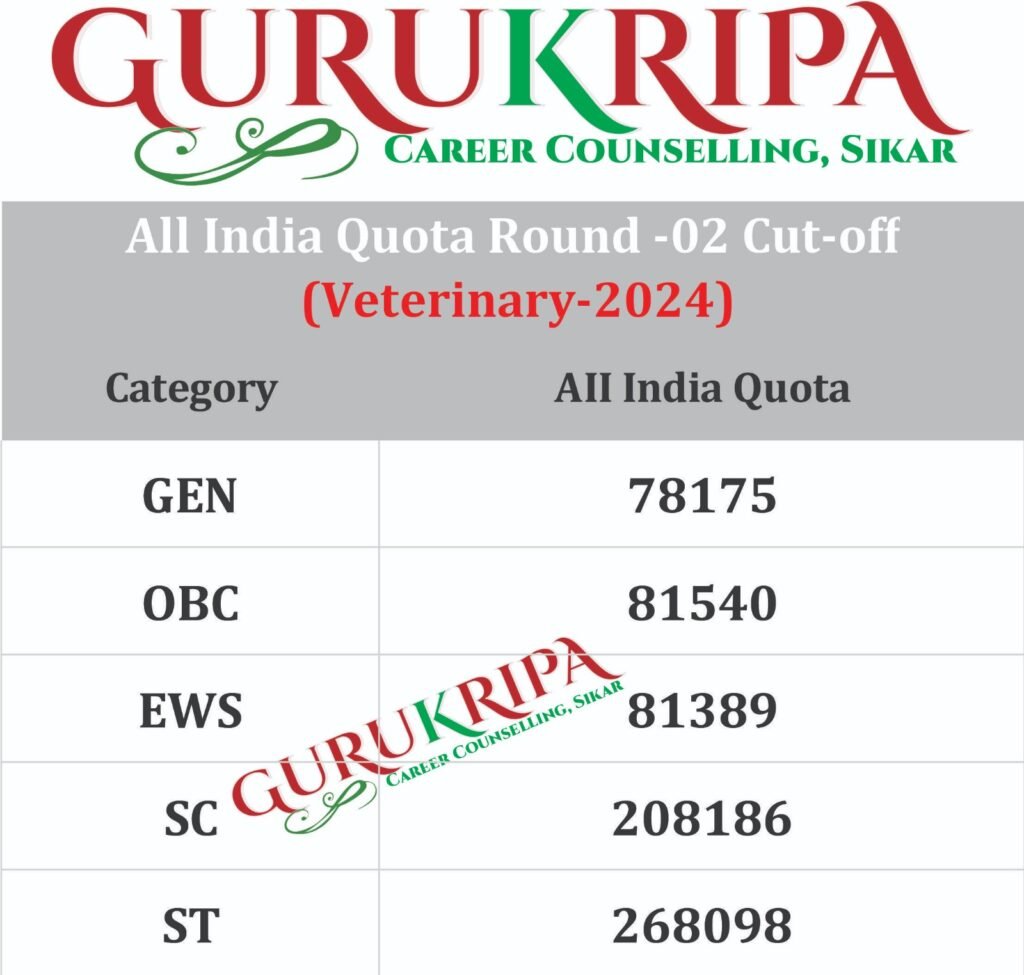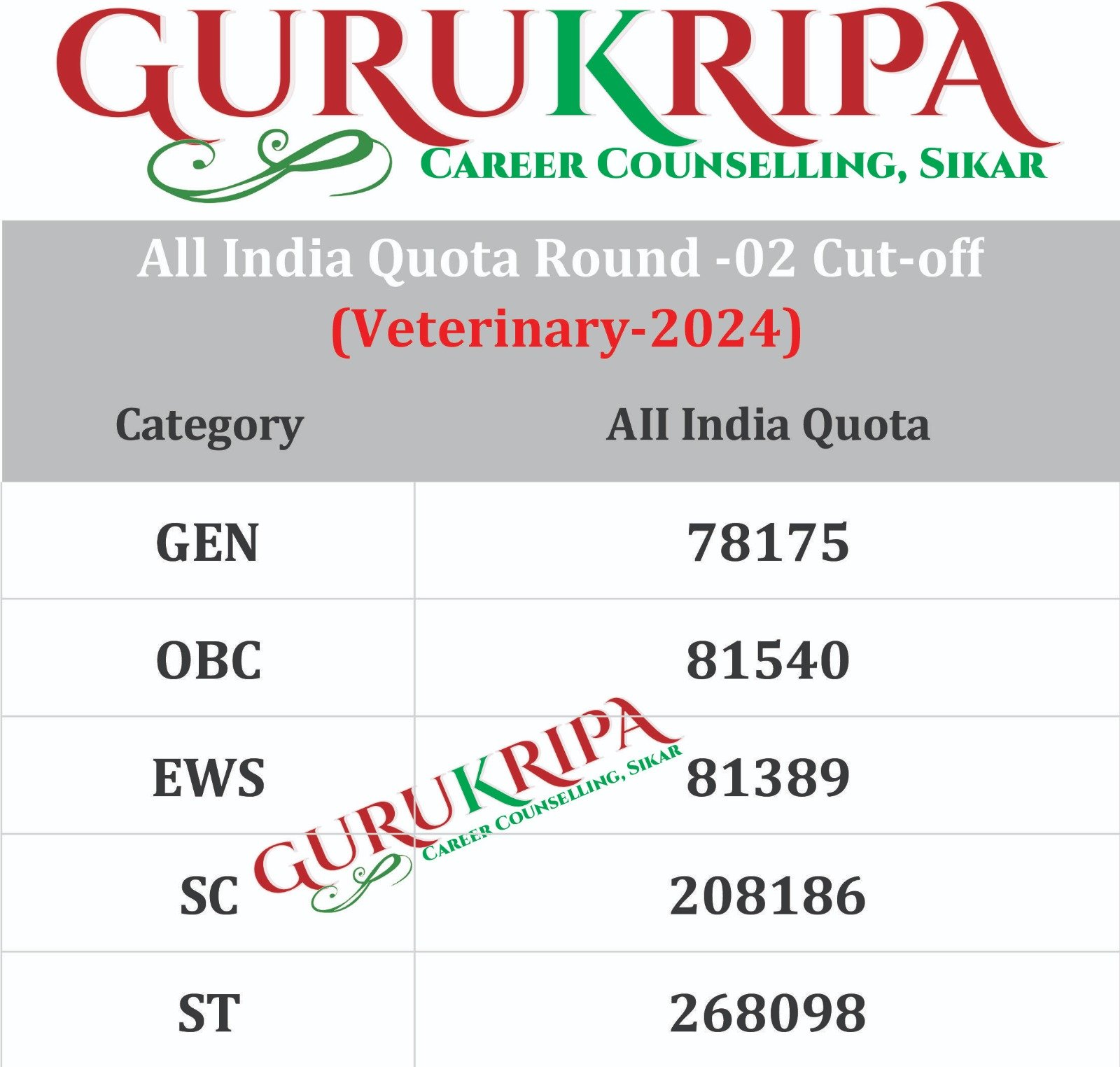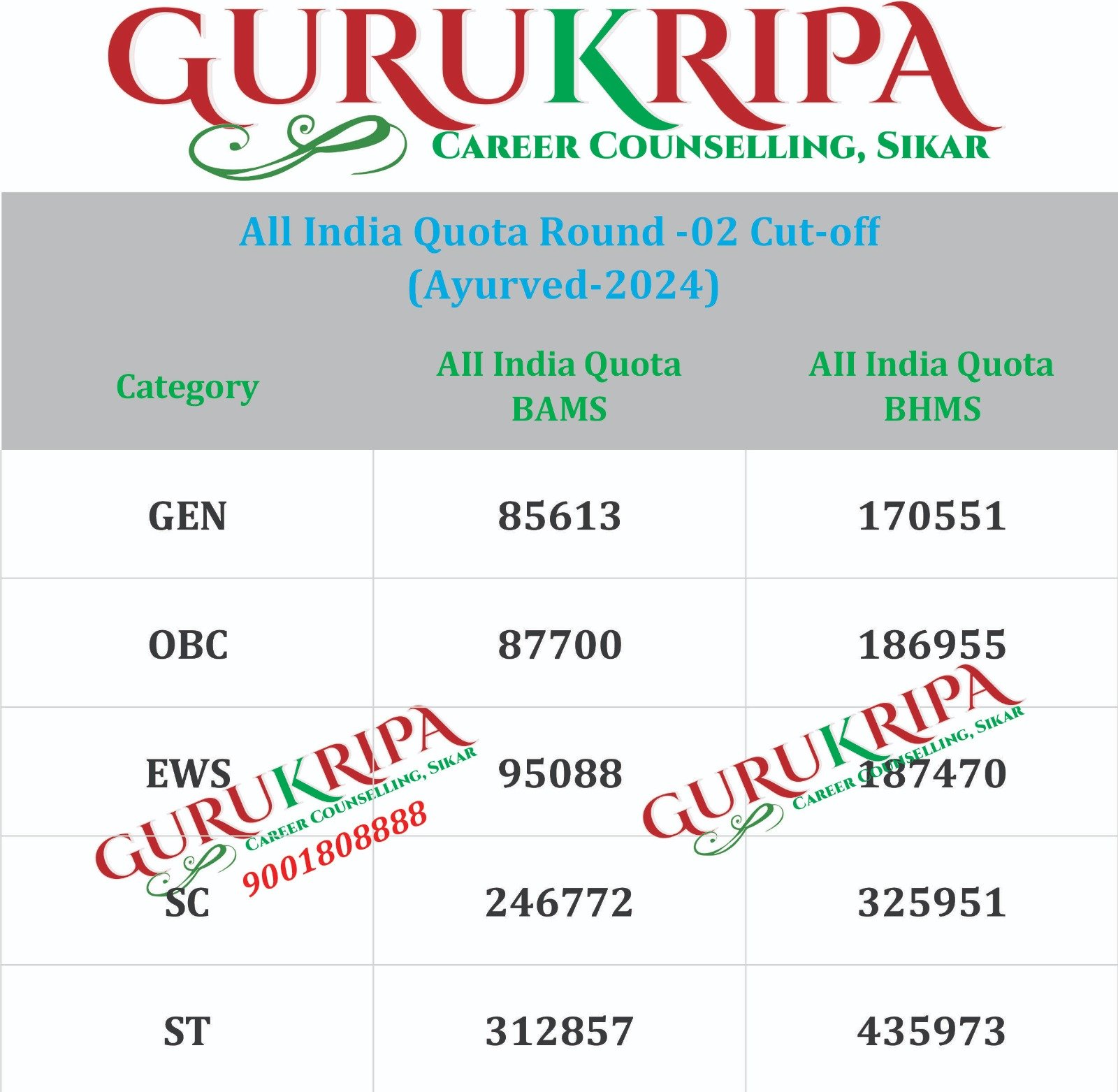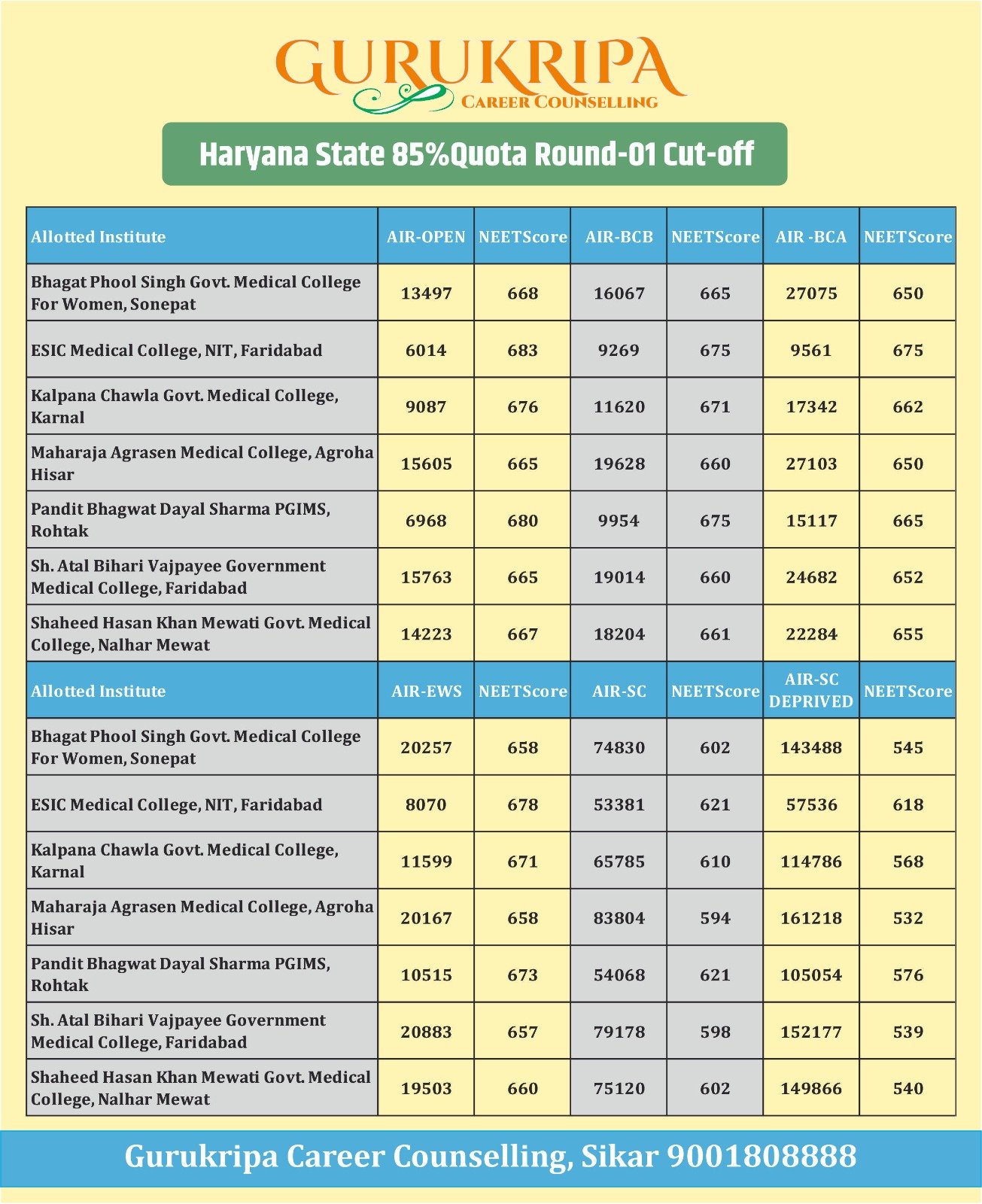Table of Contents
The All India Quota (AIQ) Round-2 for Veterinary admissions in 2024 has released the much-anticipated cut-off scores. Veterinary aspirants across the country have been eagerly waiting for this announcement, as it plays a crucial role in determining which colleges they will get admission into under the AIQ scheme.
If you’re preparing for veterinary admissions, understanding the cut-off trends can help you set realistic expectations. In this blog, we’ll break down the category-wise cut-off marks for Round-2 of the veterinary counselling, helping you grasp where you stand in the admission process.

What is Veterinary Counselling?
Veterinary Counselling is part of the admission process for various veterinary colleges across India. It is conducted by the Veterinary Council of India (VCI), which oversees the allocation of seats in different veterinary colleges under the All India Quota (AIQ). The AIQ scheme reserves a certain percentage of seats for candidates from all over India, providing opportunities to study in veterinary institutions across the country.
After every round of counselling, the VCI publishes the cut-off marks, which indicate the minimum rank or marks required for admission into a college under the AIQ.
Veterinary Counselling All India Quota Round-2 Cut-off 2024
The results for the Veterinary AIQ Round-2 in 2024 have been announced, and the category-wise cut-off scores are as follows:
- General (GEN): 78,175
- Other Backward Classes (OBC): 81,540
- Economically Weaker Section (EWS): 81,389
- Scheduled Caste (SC): 208,186
- Scheduled Tribe (ST): 268,098
These numbers represent the closing ranks for each category, meaning that candidates who secured ranks within these limits have been allotted seats in the respective colleges.
Understanding the Cut-off Trends
The cut-off marks can vary based on a variety of factors:
- Number of Seats Available: The total number of seats available under AIQ influences the cut-off. More seats mean lower cut-offs, while fewer seats push the cut-offs higher.
- Number of Candidates: The total number of candidates participating in Round-2 also plays a key role. A higher number of aspirants results in more competition, and thus, higher cut-off marks.
- Difficulty Level of the Entrance Exam: The difficulty level of the entrance exams (like NEET for veterinary courses) impacts the cut-off marks. If the exam is relatively tougher, the cut-off tends to drop as fewer candidates achieve higher scores.
- Reservation Policies: As seen in the category-wise cut-off list, the reservation policy plays a crucial role in determining the cut-off for different categories. Reserved categories like SC, ST, OBC, and EWS have lower cut-offs compared to the general category.
What’s Next for Veterinary Aspirants?
Once you know your rank and the cut-off, the next step is to complete the admission formalities at your allotted college. Here’s what you should focus on next:
- Document Verification: Ensure that you have all the necessary documents, including your NEET scorecard, rank letter, category certificate (if applicable), and other required certificates.
- Reporting to College: After document verification, you will need to report to the allotted college within the specified time period to confirm your seat.
- Payment of Fees: Once your seat is confirmed, you will need to pay the college fees to secure your admission.
How to Improve Your Chances in Future Rounds?
If you haven’t secured a seat in Round-2, don’t lose hope! There are still opportunities to get a seat in further rounds of counselling. Here are some tips to improve your chances:
- Track Cut-off Trends: Keep a close eye on the cut-off trends from previous rounds and years. This can help you gauge the competition and adjust your preferences for colleges accordingly.
- Consider State Quota: Apart from the All India Quota, veterinary seats are also available under the State Quota. If your rank isn’t enough for an AIQ seat, consider applying under the State Quota.
- Stay Updated: Ensure you are regularly checking the official websites for updates regarding future counselling rounds and seat allotment processes.
Why is Veterinary a Promising Career Choice?
Veterinary science is not just about treating animals; it is a gateway to a fulfilling career that involves animal welfare, research, and even public health. Here are a few reasons why pursuing veterinary science can be a great career choice:
- Diverse Opportunities: Veterinary professionals can work in animal hospitals, zoos, wildlife sanctuaries, research facilities, and more. There’s also scope for further specialization in fields like animal surgery, wildlife care, and veterinary pathology.
- High Demand: The demand for veterinary services is on the rise globally. Whether it’s pet care or livestock management, veterinarians are always in demand.
- Contribution to Society: Vets play a crucial role in ensuring animal welfare, controlling the spread of diseases, and ensuring the safety of the food supply through proper livestock care.
Conclusion
The Veterinary Counselling All India Quota Round-2 cut-off for 2024 has now been published, and it sets the tone for veterinary admissions this year. Candidates who have secured ranks within the cut-off can move forward with their admissions, while others can wait for future rounds. Regardless of the outcome, veterinary science offers a promising and fulfilling career path for animal lovers and those passionate about public health and research.
Stay focused, keep up with the counselling updates, and ensure all your documents are ready for the next step!




